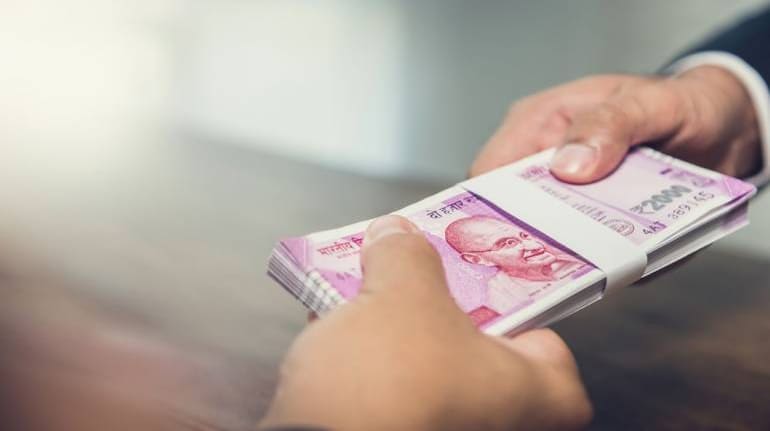



Bankers don’t expect large crowds, as seen during demonetisation, coming in to exchange Rs 2,000 notes, which the Reserve Bank of India has decided to pull out of circulation. Citizens have time till September 30 to deposit or exchange these high denominations notes.
Enough time to exchange the note and its low circulation would not burden the banks, bankers and analysts Moneycontrol spoke to after the RBI’s May 19 decision said.
"I don't think bank branches will feel any major pressure this time because the RBI has given adequate time to exchange the Rs 2000 currency note and they are not much in circulation,” City Union Bank managing director and chief executive officer N Kamakodi said.
In November 2018, after the government demonetised Rs 500 and Rs 1,000 notes, serpentine queues outside bank branches became the norm as citizens rushed to deposit or exchange invalid notes.
Kamakodi said a circular to withdraw Rs 2,000 notes from ATM was issued on March 1, 2020, and the note was not much in use. “Since then it was not in common use. So, this will not create any major issue this time," he said.
The RBI, too, said that the note was not commonly used for transactions, as it sought to explain its decision.
The total value of Rs 2,000 banknotes in circulation declined from Rs 6.73 lakh crore at their peak on March 31, 2018 (37.3 percent of notes in circulation) to Rs 3.62 lakh crore, accounting for only 10.8 percent of notes in circulation, on March 31, 2023, the central bank said.
The note was hardly in circulation so nothing would happen this time, AK Prabhakar, Head of Research at IDBI Capital Markets & Securities, said. “People were prepared this time. In the last one year, I have hardly seen any Rs 2,000 notes. They have given enough time," Prabhakar said.
Punjab National Bank MD & CEO Atul Kumar Goel said the RBI had given adequate time. “Everybody who is looking to exchange (the note) can do it at banks. There is time,” Goel said.
Ears to the ground
Moneycontrol also spoke to some branch managers in Delhi to assess the ground situation and how they were preparing for May 23, the day from which citizens can start depositing or exchanging the note.
"I think we will not face any issues. Though I am a branch manager, I have not seen the Rs 2,000 note for a long time," a Bank of Baroda official said on condition of anonymity.
A Union Bank of India branch manager, too, was sure of smooth sailing. "At our branch, we will allocate a separate corner to tackle the exchange of the Rs 2,000 note," the manager with the PSU bank said, adding they were yet to hear from the management on how to deal with the situation.
"The RBI has given prior intimation and almost four-month of time, so I don’t expect any issue this time,” a State Bank of India branch manager said, requesting not to be identified.
Banks getting ready
Banks have begun briefing branches. In a circular, a public sector bank’s management said the deposited Rs 2000 notes would be secured in separate boxes or bins and sealed at the end of the day.
"A register will also be maintained on deposits every day, which will be signed by BH (branch head) and ABH (assistant branch head) both," the circular reviewed by Moneycontrol said.
The bin or the box would be sealed when full and the branch would liaise with the Regional RBI office to lift soiled notes and 2000 currency to create space by respective CCs (cross currency swap).
"All moves of 2000 currency will be reported separately henceforth whether it is from branch to CC or CC to RBI," the order added.
The Rs 2,000 note was introduced in November 2016 to meet the currency requirement after Rs 500 and Rs 1,000 notes were demonetised.
As the objective was met and smaller denomination notes were available in adequate quantities, the printing of the Rs 2,000 note stopped in 2018-19.
Discover the latest Business News, Sensex, and Nifty updates. Obtain Personal Finance insights, tax queries, and expert opinions on Moneycontrol or download the Moneycontrol App to stay updated!
Find the best of Al News in one place, specially curated for you every weekend.
Stay on top of the latest tech trends and biggest startup news.